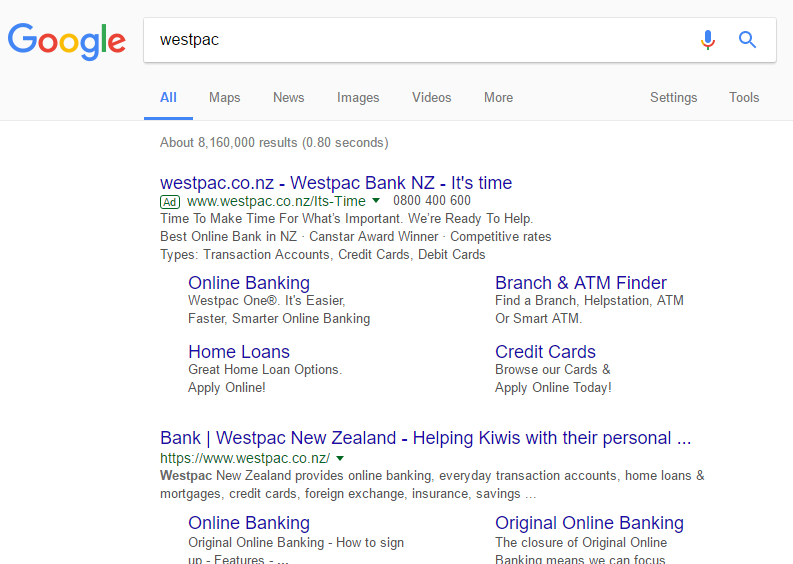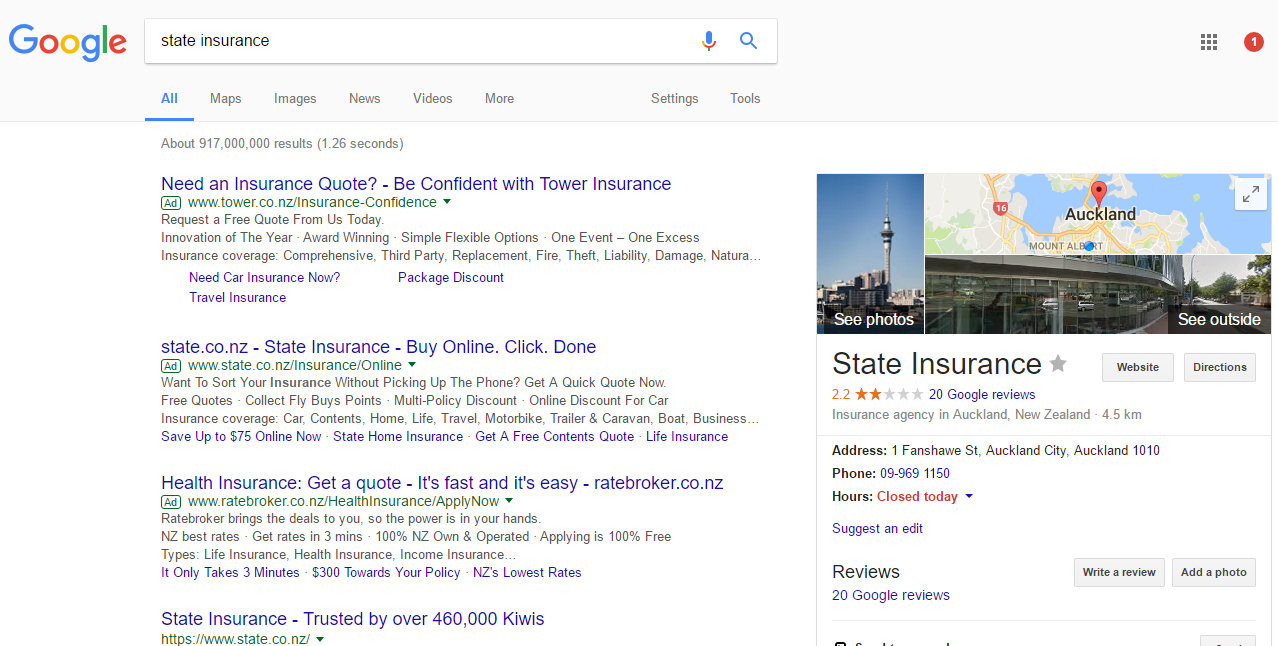So you’ve got your site and it’s great, but you know that these days competition for organic traffic is fierce, and there will always be someone doing more to beat you in the search rankings. A simple and effective way to improve your standing is to pay for AdWords. It’s quick and easy to set up, you can control your expenditure to fit your budget, and sure enough, you start having people click through to your site from the ads you run.
The question is though, would they have discovered you anyway, without seeing and clicking on your ad?

More and more often, when I Google something specific – for example Westpac bank – I’m served up the option to either click through to Westpac via their ad, or via their organic search result. The top link will cost Westpac money if I click, the bottom won’t. And while I usually try to be considerate and ignore the ad, I’d hazard a guess that many people will click the first thing on the page. As a result, Westpac are paying for a click that they would have had anyhow.
This is click cannibalisation – if you set up AdWords to display ads for things that are so distinctly “you” that your site will definitely come up in search results, then you’re going to be needlessly paying for clicks. In the above example, a smart use of AdWords would be for a rival bank like BNZ to pay for ads when people search for Westpac. I’ve seen this happen a few times, but nowhere near enough.

AdWords are a tool to extend your search visibility beyond what your site currently allows. In most cases, you will mention your company name enough times on your site that the people searching for you will find you. So save your AdWords dollars for where they can give you real value – generic and/or competitive terms that will hit your competitors where it hurts.
